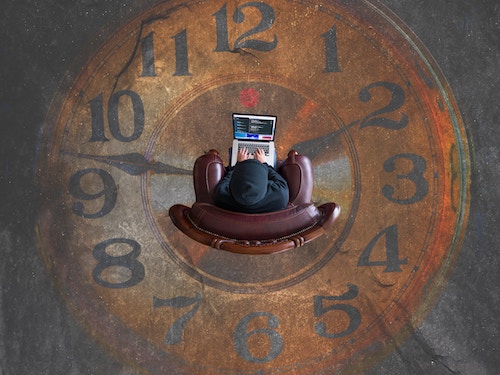
Is the Newspaper Industry Dying? A Closer Look at the Decline
May 14, 2024
Top 8 Unique Father’s Day Gift Ideas for 2024
May 16, 2024Time Management 101: How to Make the Most of Your Day
Do you often find yourself struggling to complete tasks on time or feeling overwhelmed by your never-ending to-do list? If so, it’s time to learn how to manage your time effectively. This guide will provide you with practical strategies and tips to help you say goodbye to procrastination and hello to productivity.
Get ready to take control of your schedule and make the most out of your day.
Identify Your Priorities and Set Goals.
One of the first steps in effective time management is identifying your priorities and setting goals. Take some time to reflect on what is truly important to you and what you want to achieve. This will help you determine where to focus your time and energy.
Once you have identified your priorities, set specific and measurable goals that align with them. These goals will serve as a roadmap for your daily tasks and help you stay focused and motivated.
Remember to break down your goals into smaller, manageable tasks to make them more achievable. By identifying your priorities and setting goals, you will be able to make better decisions about how to allocate your time and make the most out of your day.
Leave a lasting legacy for your loved ones. Get started on your personalized front page story today at MyFrontPageStory.com.
Create a Daily Schedule and Stick to It.
Creating a daily schedule is a crucial step in effective time management. Start by blocking out specific time slots for different activities, such as work, personal tasks, and leisure activities.
Be realistic about how much time each task will take and allocate enough time for breaks and relaxation. Stick to your schedule as much as possible, but also be flexible and willing to adjust it if necessary.
Remember to prioritize your most important tasks and tackle them during your most productive hours. By creating a daily schedule and sticking to it, you will be able to stay organized, avoid procrastination, and make the most out of your day.
Break Tasks into Manageable Chunks.
One of the most effective strategies for managing your time is to break tasks into manageable chunks. When faced with a large, overwhelming task, it can be easy to procrastinate or feel paralyzed by the enormity of it. However, by breaking it down into smaller, more manageable tasks, you can make progress and feel a sense of accomplishment along the way.
Start by identifying the different steps or components of the task. Then, assign a specific time frame or deadline for each smaller task. This will help you stay focused and motivated, as you can see the progress you are making.
For example, if you have a research paper to write, break it down into tasks such as conducting research, outlining the paper, writing the introduction, body paragraphs, and conclusion, and editing and proofreading. By tackling each of these smaller tasks one at a time, you can make steady progress toward completing the larger task.
Remember to prioritize your tasks and focus on the most important ones first. By breaking tasks into manageable chunks, you can effectively manage your time, avoid feeling overwhelmed, and increase your productivity.
Eliminate Distractions and Stay Focused.
In today’s digital age, distractions are everywhere. From social media notifications to constant email alerts, it can be challenging to stay focused on the task at hand. However, eliminating distractions is crucial for effective time management.
Start by identifying the main sources of distractions in your environment. Is it your phone? Your computer? Once you’ve identified the distractions, take steps to minimize or eliminate them. Put your phone on silent or in another room, close unnecessary tabs on your computer, and create a quiet and clutter-free workspace.
Another helpful strategy is to set specific periods of focused work time. Use a timer or a productivity app to allocate a certain amount of time for uninterrupted work. During this time, resist the temptation to check your phone or browse the internet. Instead, fully immerse yourself in the task at hand.
It’s also important to create a conducive work environment. Find a space that is free from distractions and clutter. Keep your workspace organized and tidy, as a cluttered environment can contribute to mental distractions.
Lastly, consider using productivity tools or apps that can help you stay focused. There are numerous apps available that block distracting websites or track your time spent on different tasks. Experiment with different tools to find what works best for you.
By eliminating distractions and creating a focused work environment, you can maximize your productivity and make the most of your day.
Take Regular Breaks and Practice Self-Care.
While it may seem counterintuitive, taking regular breaks and practicing self-care are essential components of effective time management. Pushing yourself to work non-stop without breaks can actually decrease your productivity and lead to burnout.
Schedule short breaks throughout your workday to give your mind and body a chance to rest and recharge. Use this time to stretch, take a walk, or engage in a relaxing activity. Stepping away from your work for a few minutes can help clear your mind and improve focus when you return.
In addition to regular breaks, make sure to prioritize self-care activities in your daily routine. This can include activities such as exercise, meditation, or spending time with loved ones. Taking care of your physical and mental well-being is crucial for maintaining productivity and overall happiness.
Remember, time management is not just about getting more done in less time. It’s about finding a balance that allows you to be productive while also taking care of yourself. So, don’t forget to schedule regular breaks and prioritize self-care in your daily routine.
Written by Ubersuggest
Nathaniel Chambers
Related posts
Photo credit: depositphotos.com
Photo credit: depositphotos.com




